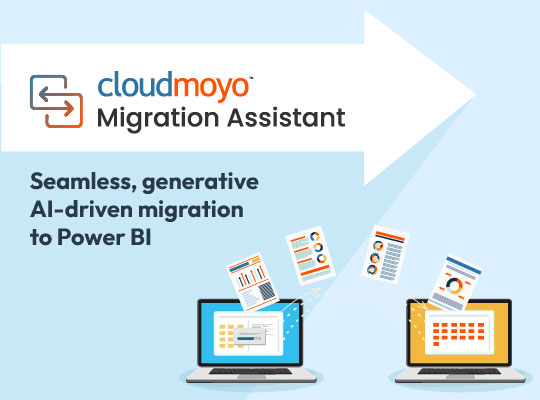In recent years, cloud adoption has gained pace across industries and has moved to the forefront of business transformation. This has never been more obvious than now, as the COVID-19 pandemic has accelerated cloud migration and the cloud infrastructure market growing by 25% in 2021 (Forrester). Cloud architecture is providing what many companies are looking for in this moment: unmatched security, agility, and the ability to both manage and extract insights from high volumes of data.
What’s in it for companies in the financial services sector? Within this industry, cloud migration has translated into a sector-wide disruption. Markets and Markets has predicted that the global financial services cloud market will have a $29.47 billion valuation by the year 2021. Capital market leaders and banks are realizing the importance of the cloud in becoming future-ready, especially in a world where the future is unpredictable. Financial institutions recognize the significance of the cloud for delivering innovation, staying agile, and competitive in the market, and embracing customization in the customer experience to improve satisfaction and retention.
In this blog post, we will be discussing what has triggered this acceleration of cloud migration for financial services companies, including the factors that make cloud migration services beneficial for this industry.
Importance of cloud migration for the financial services businesses
In the past, delays in adoption of a cloud strategy by financial services companies was largely attributable to the security and compliance challenges associated with cloud adoption. Given the very nature of the services that financial companies provide, jeopardizing either of these priorities would be detrimental. Between that and the cost concerns associated with a move to the cloud, there has been hesitancy in moving away from legacy systems and data centers.
With advancements in cloud security, however, the security of data stored within the cloud has significantly improved. Cloud providers like Microsoft are offering built-in services to protect data, apps, and infrastructure in order to help identify rapidly evolving threats early and respond quickly to them. As a result, adoption rates are expected to increase substantially.
But beyond the guarantee that important data can be guarded securely and compliantly in the cloud, why else would companies in this sector make this move? Some other key reasons for on-premises to cloud migration include:
For the business:
- Focus on business agility and elimination of a siloed data storage approach
- Growing demand for a sustainable and scalable data management platform
- Eliminate the expense of managing data centers
- Need to drive greater value from enterprise data
- Drive increased efficiencies while lowering operational costs
- Securely access third-party applications and data
For the customer:
- Better anticipate and respond to changing customer needs
- Provide unique services and customized offerings
What are the benefits of migration to the cloud?
- Enterprise synchronization
The cloud enables organizations to integrate various business units by providing a unified platform to share data among people and teams. It translates into better and integrated decision-making processes that can yield quicker solutions to customer problems and challenges.
In addition, by creating connected or standard data sets, your company can unlock more sophisticated and actionable analytics and insights. This improves the speed of decision-making and collaboration.
- IT security
In the past, security has not been considered the strongest suite of cloud computing. Over 80% of respondents find it to be the biggest challenge in using cloud services. Ironically, what happens to be a cloud migration challenge is now a potential benefit of the technology.
Most cloud providers follow a set of stringent security standards that may even exceed onsite security provisions. With redundancy, data remains secure even when one server crashes. With superior protection against malware, viruses, data theft, and data backup, financial organizations can finally breathe easy. However, it’s important to note that the quality of security is often dependent on the provider of the cloud migration services.
- Business agility
Once a financial services company goes from an on-premises solution to a cloud infrastructure, building resilient operations is simplified. The cloud enables an overall increase in resilience and agility as it focuses on mobile productivity. The need to tether an employee to a desk is greatly reduced, since data and services are readily available with the click of a button, virtually. This is a critical capability the has become a must-have in the WFH world of a global pandemic. Additionally, as infrastructure concerns are addressed, your IT team reprioritize to work on tasks with a potentially higher value for the enterprise.
- Scalable computing
Gone are the days of high upfront costs for transitioning to modern technologies. With most cloud service providers, financial institutions are using an operation-based pricing mechanism. Pay-as-you-go, or operation-based spending, enables enterprises to scale computing costs up or down as needed.
Scalable computing costs also allow you to respond to shifts or changes in market dynamics quickly. Computing capacity can be effortlessly increased or decreased post-cloud migration. This facilitates cost efficiencies and granular cost control.
- Reduced costs of maintenance
With less on-premises infrastructure to maintain, the costs linked to your infrastructure’s day-to-day maintenance are significantly reduced. As your need to house equipment and tools decreases, the costs of cloud technology upgrades also go down. With a reduction in procuring and storing software, multiple servers, supporting equipment, and other hardware, financial services enjoy decreased expenses for maintenance and operations.
- Enhanced customer and employee experience
A cloud migration strategy essentially allows financial services to steer business innovation. It becomes easier to develop quality customer experiences and streamline operations. Advanced analytics capabilities provide insights into customer behaviour and give your teams the right information needed to personalize offers, optimize products, and improve customer satisfaction.
Firms can attract new talent by migrating enterprise data to the cloud. How? Tech solutions and cloud capabilities provide new ways of working, including skill sets such as human augmentation and automation. This drastically enhances productivity, transparency, and connectedness. As financial institutions leverage modern technologies and capabilities such as NLP and IoT, talent retention also improves, and they can generate higher revenue by cutting costs in optimizing operations.
Conclusion
In order to reach their value goals, financial services firms must adopt an end-to-end approach in cloud migration. Cloud migration services have dramatically adjusted to industry regulations and needs. Your organization can unleash increased business outcomes—including higher employee productivity with cloud computing. By placing the cloud at the center of business transformation, it is possible to realize its immense potential.
We work with companies in the financial services sector to ensure a smooth transition to the cloud, with no disruptions to business processes and compliance with governing policies, by strategizing Azure migration and cloud services. This can occur at any stage in your cloud journey, whether you are looking to rearchitect applications and optimize them for a cloud platform, lift and shift your applications to the cloud without making adjustments to code, or rebuild SaaS or PaaS services and architecture to add new functionalities.



















